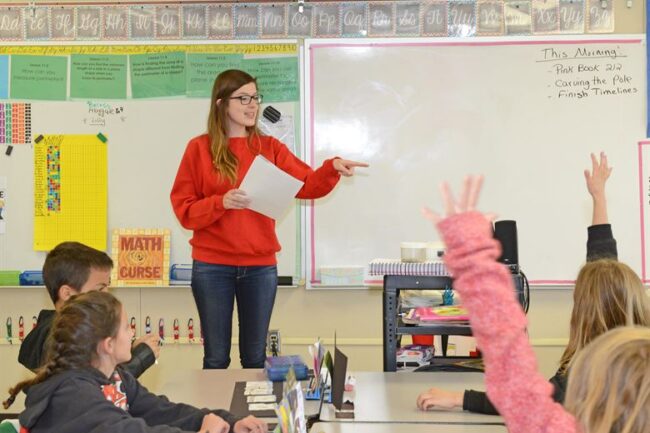
Whether you like the current U.S. President or not, there is no debating that current political events create an opportunity for social studies teachers. Highly effective social studies teachers are using current events to increase the probability that their students will:
- Vote in later life
- Support basic democratic values
- Take part in political discussions
- Follow political news in the media
- Be interested in the political process
- Have confidence in their ability to influence public policy
What are some other benefits of discussing controversial topics in social studies classrooms?
Controversial issue discussions increase critical thinking skills. Controversial issue discussions can provide opportunities for young people to develop their thinking skills by processing information, reasoning, investigating, innovative thinking, and evaluating.
“In a 1994 survey of over 11,000 college graduates, the “ability to think critically” ranked as the second most important skill out of 16 in their daily life (#1 was interpersonal skills).”
Source: Cooperative Institutional Research Program, “1994 Nine Year Follow-Up Survey (of 1985 Freshmen),” Higher Education Research Institute at UCLA, 1995.
Studying and debating controversial topics in school helps increase student attention, motivation, achievement, creativity, and self-esteem. “A 2009 meta-analysis of studies on teaching controversial issues found that teaching the pros and cons of controversial issues in a structured conflict format can help focus student attention, increase motivation, produce higher levels of cognitive reasoning, produce higher levels of achievement and retention, as well as increase levels of creativity and divergent thinking and students’ self-esteem.” Source: David W. Johnson, Minnesota University, and Roger T. Johnson, Minnesota University, “Energizing Learning: The Instructional Power of Conflict,” Educational Researcher, Jan. 2009.
Teaching controversial topics helps students develop non-violent strategies for dealing with conflict. Social studies teachers know that conflict and controversy are unavoidable wherever humans interact, and schools can provide a neutral venue where reasonable debate can be cultivated, and unbiased independent study can take place. Having controversial topic discussions in a classroom allows students to develop their social skills such as dealing with difficulttopics, listening to others, questioning what they do not agree with, expressing their beliefs and communicating their frustrations and fears all within a controlled, safe environment without violence. Source: P. Reitano, C. Kivunja, and K. Porter, “Teaching Controversial Issues In Schools to Prepare Children for a Sustainable Global Village,” Australian Association for Research Education website, 2008
Students who debate controversial issues in school are more likely to be engaged and active citizens. “In a 2002 survey of 1,166 youth aged 15-25, the following differences were found between youth who debated issues in class and those who did not:”
Discussing current events and debating controversial issues are associated with higher scores on the National Assessment of Educational Progress (NAEP), the largest national standardized test in the United States. “An Apr. 2013 fact sheet from the Center for Information & Research on Civic Learning & Engagement (CIRCLE) reported that 12th-grade students who took part in frequent discussions of current events and debates about current issues “including controversies” scored higher on the NAEP Civics test than students who did not frequently engage in those activities. Eighth graders also scored higher when regularly participating in current events discussion.
Regular discussion of current events was correlated with a 16-point gain on the NAEP Civics test for male 12th graders and a 13-point gain for females. Male eighth-graders taking part in current events discussion gained a 10-point advantage, while female eighth-graders gained five points. Frequent debates were correlated with a six-point gain for male 12th graders and an eight-point gain for female 12th graders.”
Young people, like adults, will feel the need to try to make sense of current events through discussions and debates. Social studies teachers who prepare their students by promoting constructive discussions of emotive issues among their students and teach their students appropriate skills for participating in highly-charged discussions are taking full advantage of a situation that will inevitably come up. Social studies teachers who fail to plan for controversial topic discussions in their classrooms are missing out on an opportunity for their students. They should at least prepare for spontaneous volatile student debates which will inevitably occur given these volatile times.
Judith Pace of EdWeek noted, “Classroom teachers and the professionals who support them – school leaders, teacher educators, and professional developers – need to prepare for and take educational advantage of the disequilibrium created by these events. In fact, teacher educators and school administrators should lead the way by modeling constructive talk about difficult topics in their own practice.”
